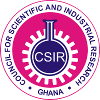 Per our mandate in the food value chain, we play various roles from the farm gate to the consumer – post-harvest food handling. Sometimes however, for optimum results which so require that our expertise be brought to bear prior to harvesting / processing (value addition), we sometimes collaborate with the stakeholders at that level of the value chain.
Per our mandate in the food value chain, we play various roles from the farm gate to the consumer – post-harvest food handling. Sometimes however, for optimum results which so require that our expertise be brought to bear prior to harvesting / processing (value addition), we sometimes collaborate with the stakeholders at that level of the value chain.
We mainly research and come up with technologies for value addition, and solutions to food safety and security issues in the value chain.
Our competent research scientists and technical staff (technicians and technologists), based on their areas of expertise, have been grouped into sections to handle various food programmes.
Our expertise is in the areas of:

